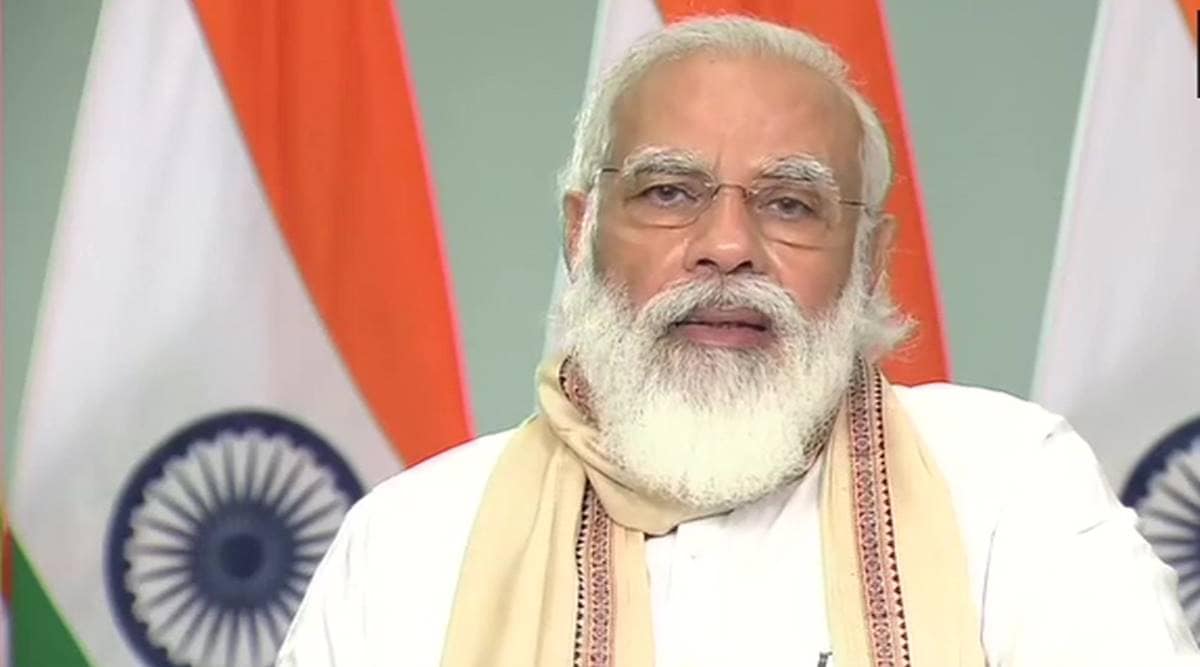 Prime Minister Narendra Modi. (File)
Prime Minister Narendra Modi. (File)Coronavirus India News Live Updates: Prime Minister Narendra Modi Wednesday chaired a high-level virtual meeting with Chief Ministers and Health Ministers of seven Covid-19 high burden States and UT to review Covid-19 response and management. Chief ministers of Maharashtra, Andhra Pradesh, Karnataka, Uttar Pradesh, Tamil Nadu, Delhi and Punjab attended the meeting.
“We should enhance focus on effective testing, tracing, treatment, surveillance and clear messaging,” PM Modi said at the meeting with the CMs, and asked states to reassess if lockdowns of one or two days are effective in containing COVID-19. The Prime Minister also asked states to manage the opening of economic activities while fighting the virus.
With India recording 83,347 cases of the novel coronavirus in the 24 hours ending 9 am Wednesday, the total number of cases in the country crossed the 56 lakh mark to reach 5,646,011. Also, as many as 1,085 deaths during the same period took the toll to 90,020. The fatality rate is 1.60 per cent. At present, the country has 9,68,377 active cases and as many as 45,87,614 people have been treated and discharged.
The number of people who recovered from Covid-19 stood at over 1.01 lakh on Monday, the highest single-day rise so far. The recovery rate stands at 80.86 per cent. With India recording the highest number of COVID-19 recoveries in the world, the government on Tuesday said that for the past four consecutive days the number of daily recovered cases surpassed the new infections reported per day.
Globally, as many as 31,480,193 people have been infected while 968,726 have succumbed to the virus. Also, 21,624,431 people have recovered so far.
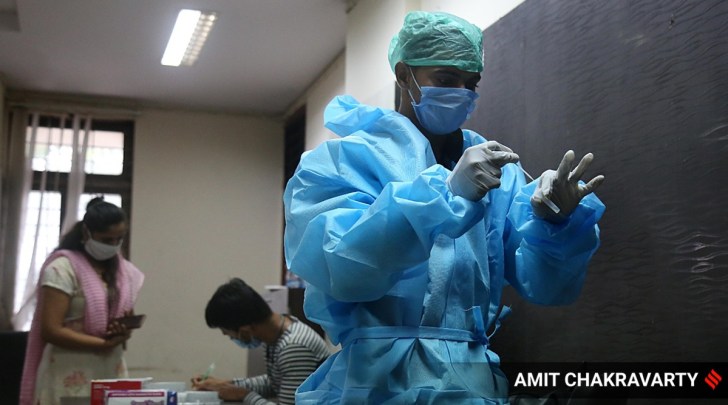 Coronavirus India LIVE updates: Rapid tests for Covid-19 are conducted in Mumbai on Tuesday. (Express photo by Amit Chakravarty)
Coronavirus India LIVE updates: Rapid tests for Covid-19 are conducted in Mumbai on Tuesday. (Express photo by Amit Chakravarty)
Minister of State for Railways Suresh Angadi passed away Wednesday at AIIMS in New Delhi. Angadi was undergoing treatment for Covid-19. He was 65.
Angadi had tested positive for novel coronavirus on September 14 ahead of the commencement of the Monsoon Session of the Parliament. More details here.

India has reported large outbreaks of COVID-19 in certain districts and only 10 states are currently contributing to 75 per cent of the active cases in the country, which suggests that coronavirus is still limited in its spread, Parliament was informed on Wednesday.
In a written reply to a query in Lok Sabha on whether there is community transmission of COVID-19 in the country, Minister of State for Health Ashwini Choubey said the current phase of the pandemic in India is on multiple trajectories across urban and semi-urban areas of the country.
The epidemic curve of any pandemic goes through an ascending, peaking and descending phase, he said. More details here.
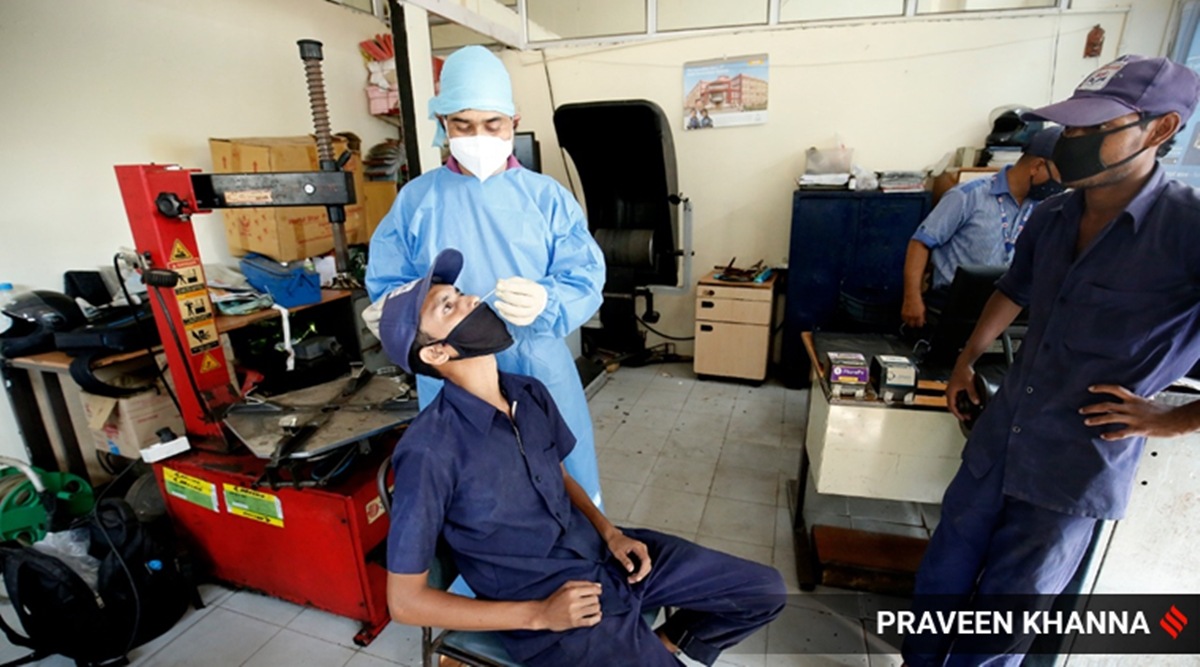
Prime Minister Narendra Modi Wednesday asked states to gauge if local lockdowns of one or two days were effective in containing Covid-19 and asked them to move ahead with full strength on the economic front while fighting the pandemic.
In a review meeting with chief ministers of seven states/UTs with a high number of cases, PM Modi put forward the strategy of having “micro containment zones” as it would curb the infection spread and also allow activities to go on.
“Every state should observe how effective they are in preventing the coronavirus, which is a 1-2 day local lockdown. Is it not because of this that there is a problem in starting economic activities in your state? I urge all states to think seriously about this,” PM Modi said. Click here to read the full report.
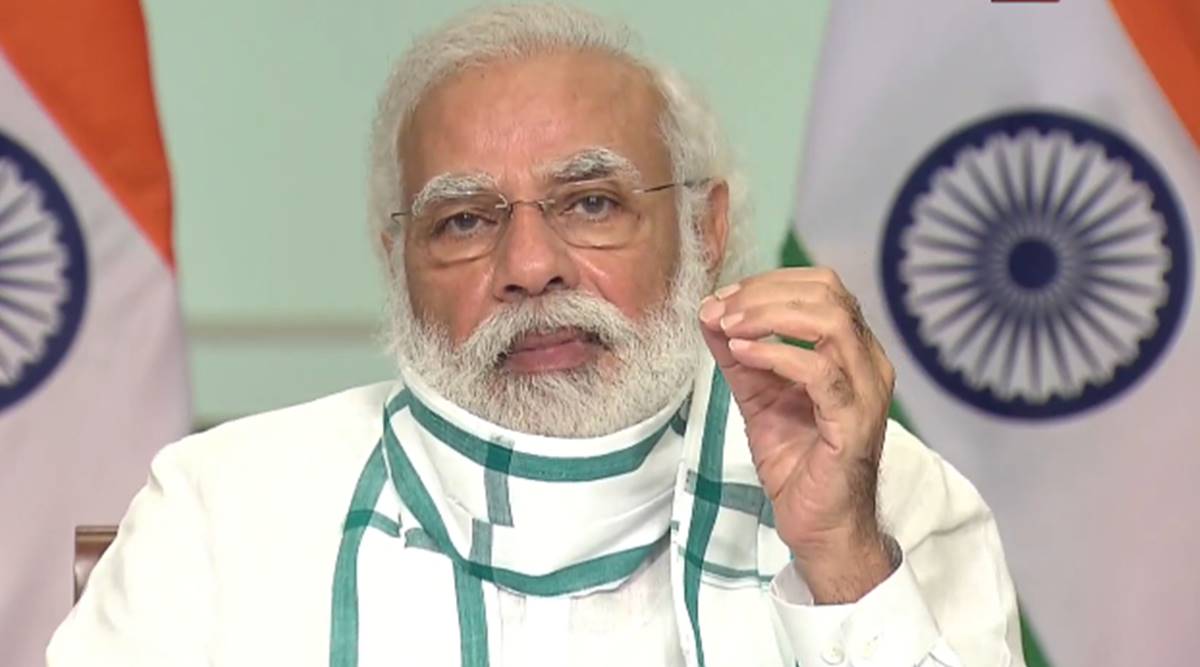
"While fighting Covid-19, we have to also move ahead with full strength on the economic front," Prime Minister Narendra Modi says during meet with CMs from seven states and UTs.
"We need to increase our focus on effective testing, tracing, treatment, surveillance and clear messaging," Prime Minister Narendra Modi said during his meeting with Chief Ministers and Health Ministers of seven Covid-19 states and UT's.
Prime Minister Narendra Modi Wednesday chaired a high-level virtual meeting to discuss the coronavirus situation with the chief ministers of seven states tomorrow. Chief ministers of Maharashtra, Andhra Pradesh, Karnataka, UP, Tamil Nadu, Delhi and Punjab attended the meeting.

Delhi's Deputy Chief Minister Manish Sisodia was hospitalised Wednesday due to coronavirus. The 48-year-old Aam Aadmi Party leader has been admitted to the state-run LNJP Hospital in Delhi. Sisodia had tested positive for the infection on September 14 and was in home isolation.
Centre on Wednesday said that 14 states and Union Territories, including Gujarat, Odisha, Punjab, Uttarakhand, Assam, Haryana and Tripura, have demonstrated better COVID-19 response with higher tests per million and commensurate lower positivity rate than the national average.
Health Ministry also said that India's total tests for detection of Covid-19 has reached over 6.6 crore and tests per million have risen to 48,028 as on date with the national cumulative positivity rate being recorded at 8.52 per cent.
The country's testing capacity has surged to more than 12 lakh tests daily, it said. Up to September 22, a total of 6,62,79,462 samples have been tested with 9,53,683 samples being tested on Tuesday, PTI reported.
Delhi Health Minister Satyendar Jain Wednesday said there is no shortage of oxygen in Delhi hospitals and that enough stock is available for the next six to seven days.
The minister also said the Covid-19 positivity rate in the national capital has plateaued out a bit and a downward trend is expected in a week or two.
"There is no shortage of oxygen in Delhi hospitals. I took stock of the situation. There is a slight issue, but there is enough oxygen for 7 days in Delhi government-run hospitals," he was quoted as saying by PTI.
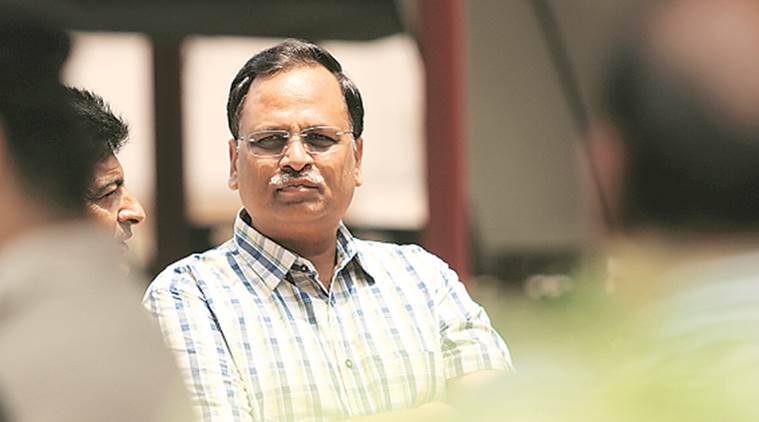
Saudi Arabia has banned flights to and from India from Tuesday amid a surge in coronavirus cases, according to an official document. In a circular issued on Tuesday, Saudi Arabia's General Authority of Civil Aviation (GACA) said it was "suspending travel to and from the following countries: (India, Brazil and Argentina) including any person who has been in any of the mentioned countries above in the last 14 days prior to their arrival to the Kingdom". However, passengers with "official government invitations" are excluded, PTI reported.
At the national level, the number of recoveries remained higher than the detection of new cases for the fifth straight day on Tuesday, the longest that this trend has held. In fact, since June, there have been only three occasions before this when the daily recovery had exceeded the detection of new infections.
Bengaluru, on Tuesday, became the third city in the country to have more than two lakh people infected with novel coronavirus. The city reported a little over 3,000 new cases on Tuesday to go past the two lakh-mark. Only Pune and Delhi have more people infected with the virus.
But Bengaluru has far greater number of active cases than even Delhi. The number of active cases is now touching 40,000 in the city. Only Pune has more, about 60,000. Bengaluru has been reporting between two and three thousand cases every day since the start of August, but in the last ten days, this number has been around the mid-3,000s. The city accounts for more than 37 per cent of all the confirmed infections in Karnataka
Kerala Agriculture Minister V S Sunil Kumar has tested positive for COVID-19, becoming the third member of the Pinarayi Vijayan cabinet to be infected by the deadly virus. His office said Kumar, who returned to Thiruvananthapuram two days ago, had complained about the breathing problem.
"He underwent a medical check-up. His samples were collected for lab examination and its result came today. The Minister will be admitted to Government Medical College Hospital here," an official said. He said the minister's personal staff and those who came in direct contact with him will undergo quarantine.
The Chhattisgarh government has warned of action against private hospitals if they overcharge COVID-19 patients, an official said on Wednesday. There have been complaints that some private hospitals, which are designated as COVID-19 treatment facilities, are charging hefty amounts from patients.
Chhattisgarh Health Services Director Neeraj Bansod on Tuesday issued a directive to all district chief medical and health officers (CMHOs), asking them to take action if they get complaints against private hospitals of charging more than the fees fixed by the state government for COVID-19 treatment.
Such hospitals will face action under the Epidemic Diseases Act, the Chhattisgarh Public Health Act, 1949, and the Chhattisgarh Epidemic Diseases COVID-19 Regulations, 2020, a public relations department official said on Wednesday. (PTI)
Hyderabad-headquartered Bharat Biotech on Wednesday announced it would be manufacturing up to a billion doses of a single-dose intranasal Covid-19 vaccine in collaboration with the Washington University School of Medicine in St Louis, Missouri. The agreement is expected to help overcome potential difficulties with distributing the vaccine, like the high cost of vaccination or a possible shortage of personnel to administer the doses to the required population.
The company, which has entered into a licensing agreement with the university for the novel chimp-adenovirus candidate, owns the rights to distribute it “in all markets” except the United States, Japan, and Europe.
While the phase I human trials will take place at the Treatment Evaluation Unit of Saint Louis University (SLU), also in St Louis, Missouri, Bharat Biotech is expected to undertake further stages of the clinical trials in India “upon obtaining the required regulatory approval”, the company said in a release.
One month into the school year, Linnet Early, a social studies teacher outside St. Louis, has an anxious new ritual: scanning the Zoom squares on her computer screen at the beginning of each class to see which of her sixth-grade students are missing. It is usually quite a few.
“I’ll have kids gone for a week, pop in for one class the next, then miss the second class that week,” said Early, who has 100 mostly low-income students spread across eight classes, all online. “It’s hard to know what their struggles are, how to wrap your arms around it.”
Around the country, teachers and school administrators are hoping that a patchwork of plans cobbled together over the summer will help address one of the most pressing challenges they face as millions of students start a new school year online: How to make sure they come to virtual class, and what balance to strike between punitive and forgiving policies if they don’t.
Attendance data from last spring, while limited, suggests that the problem loomed large in many districts after school buildings closed in mid-March. In one survey of 5,659 educators around the country, 34% of respondents said that no more than 1 in 4 students were attending their remote classes, and a majority said fewer than half their students were attending.
Karnataka Deputy Chief Minister Govind M Karjol Tuesday tested positive for coronavirus. The BJP leader had attended the ongoing legislative session at Vidhana Soudha in Bengaluru.
"Even though I am asymptomatic, I have been admitted to a hospital on the advice of doctors. I urge all those who have come in contact with me to get tested for #coronavirus and to take necessary precautions," Karjol confirmed in a tweet.
Several leaders including CM B S Yediyurappa wished him a speedy recovery.
Most people who are infected by the SARS-CoV-2 virus, that causes COVID-19, are not asymptomatic throughout the course of infection, a review of studies carried early in the pandemic suggests. While some people who contract the novel coronavirus never experience any symptoms, there remains disagreement about what proportion of total infections these cases represent.
The latest study, published in the journal PLOS Medicine, suggests that true asymptomatic cases of SARS-CoV-2 comprise a minority of infections. According to the researchers at the University of Bern, Switzerland and colleagues, the full spectrum and distribution of the severity of COVID-19 symptoms are not well understood. Some people with the virus may experience severe infections resulting in viral pneumonia, respiratory distress syndrome, and death, while others remain completely asymptomatic or develop mild, nonspecific symptoms.
Students who have been tested positive for coronavirus will not be allowed to appear for the Common Law Admission Test (CLAT) 2020, as per the revised guidelines issued by the Consortium of National Law University. “All the candidates who have been tested positive and are under medical surveillance or in isolation will not be permitted to take the CLAT 2020 examination scheduled to be held on September 28,” the official notice read.
As per the guidelines, candidates need to bring a self-health declaration form to the exam hall without which entry will not be permitted. Students also need to bring their own masks, gloves, and personal hand sanitiser to the exam centre. The exam will be held amid social distancing norms, as per the rules to avoid the spread of the coronavirus pandemic.
Rising anxiety, fear, disturbed sleep patterns and a constant feeling of helplessness are only a few factors wreaking havoc on the mental health of frontline doctors— as Covid-related death toll continues to increase— and India enters the eighth month of battling the pandemic.
This deterioration in the mental health of doctors has been a direct consequence of the persisting pandemic. Working shifts of 12-hour or more, while being a bystander to unabated deaths has begun to show its toll on the healthcare staff.
As per a psychiatrist posted at the civil hospital of Panchkula, at least 40 per cent of the doctors at the hospital, who are directly involved in dealing with Covid ICUs or sampling have approached him, seeking counselling or advice regarding mental health issues.